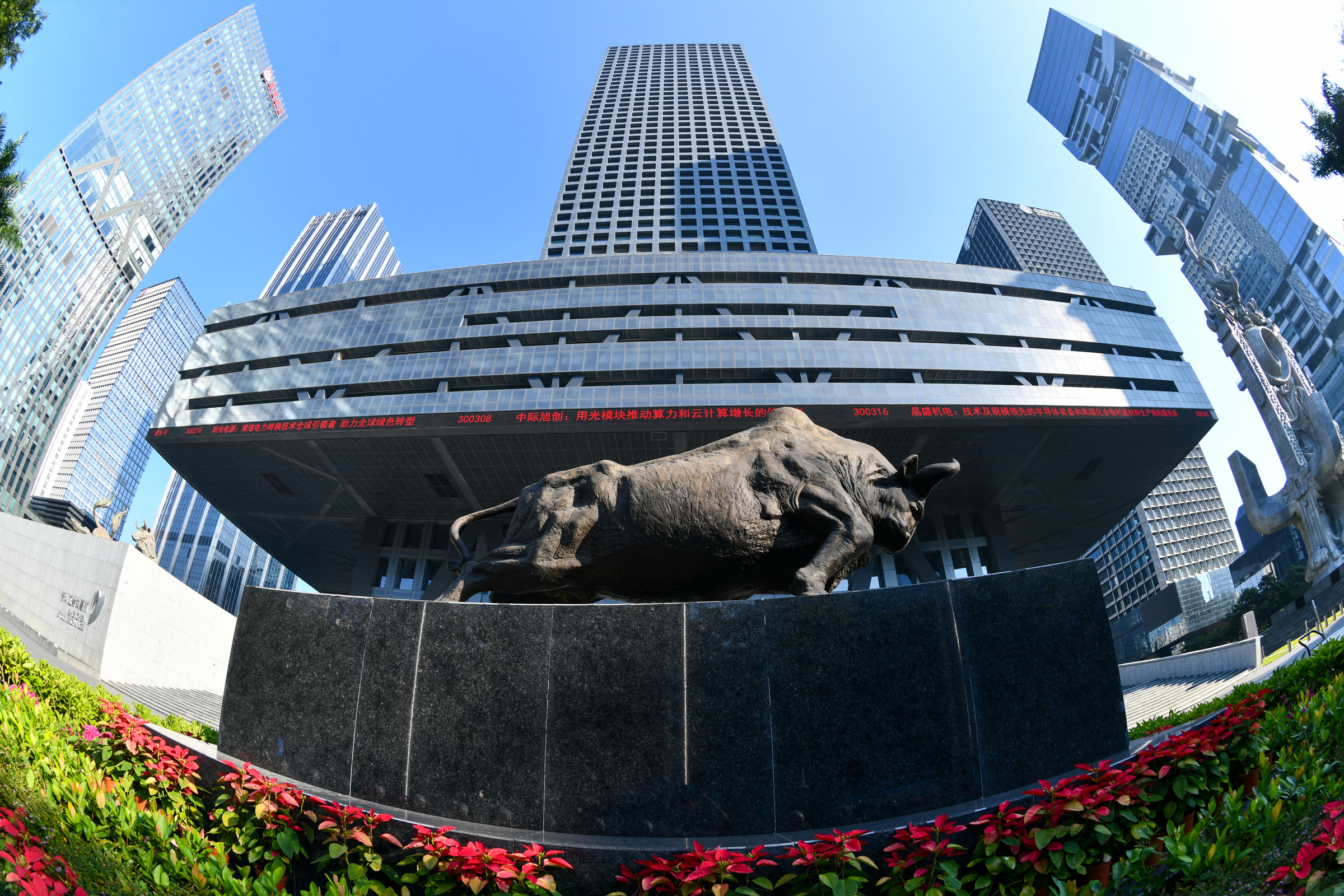Over the past 8 months, US investment firm Cambridge Associates has received around 30 inquiries about funds investing in the $19,000 billion Chinese stock market. Senior Investment Director Benjamin Low noted this is a stark contrast to 2023, when demand was minimal.
Many funds not based in Asia are also planning trips to mainland China and Hong Kong later this year to explore investment opportunities. Some of these are returning for the first time since Covid, according to Low.
In London, Polar Capital, a $20 billion fund manager, upgraded its outlook on Chinese equities from "underweight" to "overweight" in late 2024. This year, they have increased their allocation to assets from the world's second-largest economy by one and a half times, to over 30% of their emerging markets portfolio.
 |
Outside the Shenzhen Stock Exchange. Photo: AFP |
Outside the Shenzhen Stock Exchange. Photo: AFP
In February, Polar Capital's annual conference attracted 55 clients to its China session, double the number in 2023. Fund manager Jerry Wu said DeepSeek's breakthrough has driven a trend of "revaluing the innovative assets of the world's second-largest economy." He sees positive growth momentum in numerous sectors, from AI to biotechnology and robotics.
Data on new fund launches and capital flows indicate growing expectations for the $19,000 billion stock market, including Hong Kong. A Morgan Stanley report noted that global hedge funds' purchases of Chinese stocks last month reached a six-month high. "A year ago, people wanted to remove these stocks from the (emerging market) index. Now they are seen as indispensable assets," said Zheng Yucheng, director of China investments at Allianz Global Investors.
Last week, the Shanghai Composite index reached a decade high, while Hong Kong stocks hit a four-year peak. Progress in US-China tariff negotiations and Beijing's monetary easing policy have bolstered investor confidence. Analysts believe increasing foreign optimism could further fuel the domestically driven capital market.
Some foreign investors returned to China early, attracted by this year's strong price increases and a desire to diversify away from US assets, according to Brett Barna, a former hedge fund manager who now runs two family offices in New York.
"This stock market is interesting because it's not very correlated with the rest of the world, at least with domestic A-shares," he said. He plans to establish an investment platform to allow US and European capital to access the Chinese capital market.
However, the Chinese stock market also faces challenges related to the economy's performance. Overall economic activity has slowed, as reflected in August's industrial production and retail sales figures, among other indicators.
Foreign direct investment (FDI) also fell by more than 13% in the first five months of the year, prompting Beijing to launch new stimulus measures in July. This partly explains why some foreign investors are starting to return, but significant long-term capital inflows have yet to materialize.
Alexander Redman, chief equity strategist at CLSA, said deflationary pressure is preventing him from increasing his allocation to Chinese stocks. Meanwhile, Polar Capital's Wu emphasized that the AI wave must benefit the broader economy to sustain growth beyond 2025.
According to Cheng Yu, portfolio manager at Allianz's China fund, foreign investors are currently in a "re-evaluation" phase, focusing on Beijing's long-term competitiveness. "Foreign capital is still at the observation stage. They haven't entered yet, but at least they've started thinking about coming back," he said.
Phien An (Reuters)












